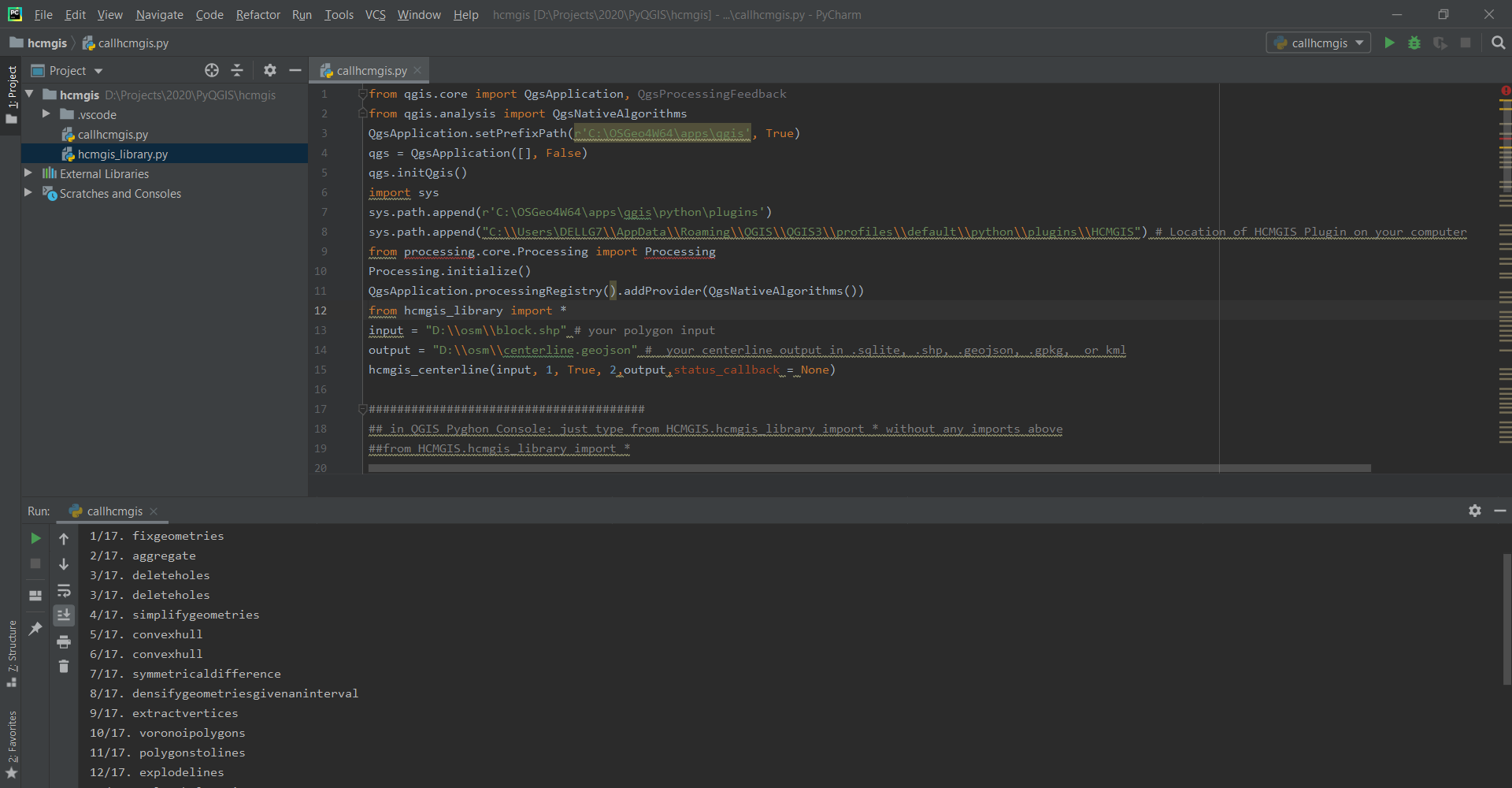Call HCMGIS Library in Standalone PyQGIS Application
03 May 2020 -
less than 1 min read time
Tags:
HCMGIS Plugin
QGIS
Standalone PyQGIS
1. Import HCMGIS library in Standalone PyQGIS Application:
In your PyGIS Application, simply copy hcmgis_library.py to your project folder and then import by “from hcmgis_library import *”
If you don’t want to copy hcmgis_library.py, just reference to it as below:
from qgis.core import QgsApplication, QgsProcessingFeedback
from qgis.analysis import QgsNativeAlgorithms
QgsApplication.setPrefixPath(r'C:\OSGeo4W64\apps\qgis', True) # your QGIS Install Folder
qgs = QgsApplication([], False)
qgs.initQgis()
import sys
## Add the path to processing so we can import it next
sys.path.append(r'C:\OSGeo4W64\apps\qgis\python\plugins')
sys.path.append("C:\\Users\DELLG7\\AppData\\Roaming\\QGIS\\QGIS3\\profiles\\default\\python\\plugins\\HCMGIS") # Location of HCMGIS Plugin on your computer
from processing.core.Processing import Processing
Processing.initialize() # Beacause HCMGIS Plugin used some native QGIS algorithms in voronoi-related Sptial Processing tools
QgsApplication.processingRegistry().addProvider(QgsNativeAlgorithms())
# Import hcmgis_library
from hcmgis_library import *
2. List of HCMGIS Library Functions:
hcmgis_basemap_load()
hcmgis_covid19()
hcmgis_covid19_timeseries()
hcmgis_covid19_vietnam()
hcmgis_medialaxis(layer, field, density,output,status_callback = None)
hcmgis_centerline(layer,density,chksurround,distance,output,status_callback = None)
hcmgis_closest_farthest(layer,field,closest,farthest,status_callback = None)
hcmgis_lec(layer,field,output,status_callback = None)
3. Call HCMGIS Library:

